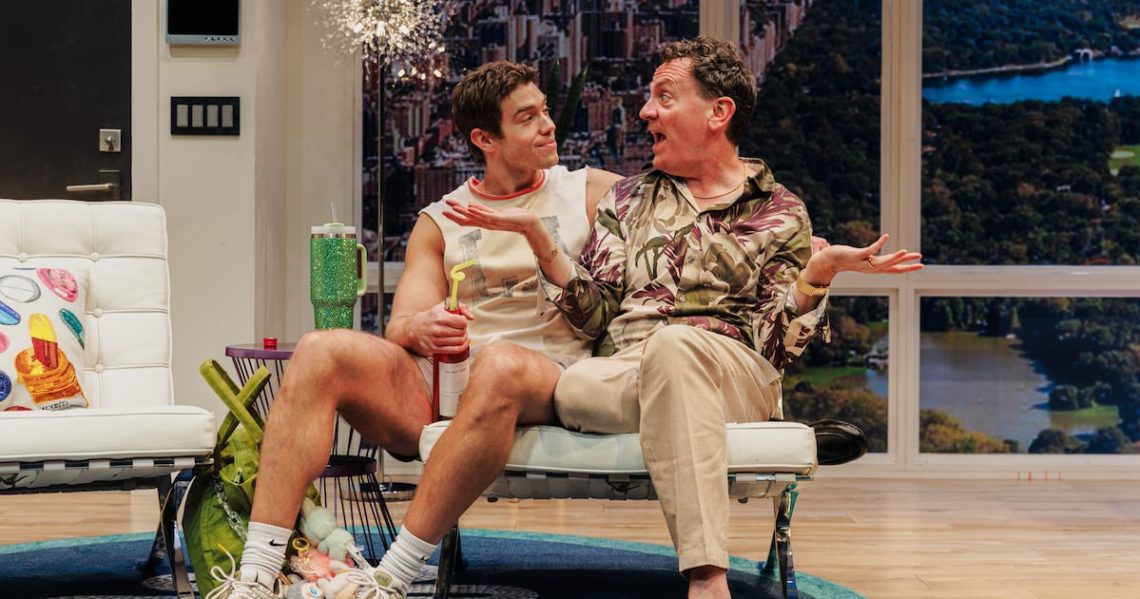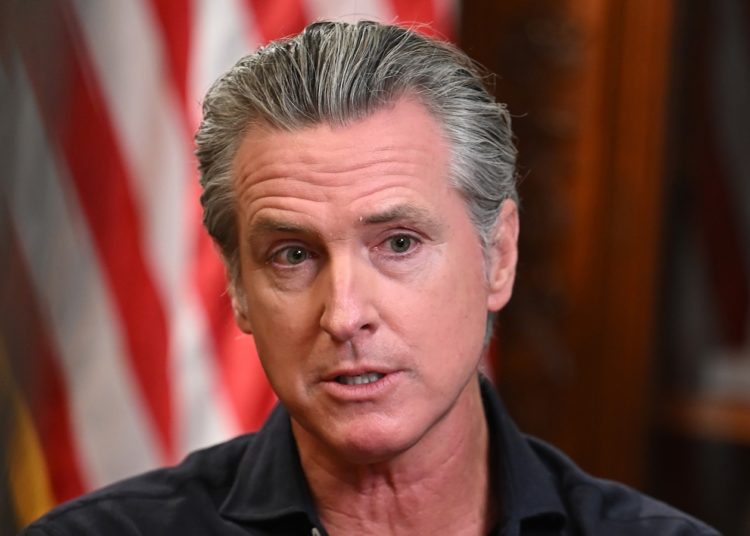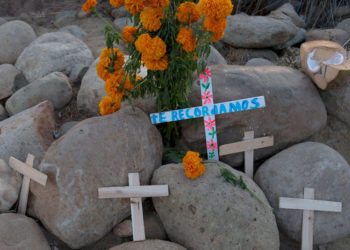It’s time for brunch, and it’s murder out there. Drew Droege’s Messy White Gays is 80 minutes of frenzied, high-pitched farce: a barrage of extremely gay, extremely New York, extremely right now, extremely geographically hyper-local zingers and insults, such as a perfect one-liner about the hot dogs at Julius. (How will those hit if the show travels outside Manhattan? Do you recast the references for whatever town you pitch up in?)
This sporadically very funny, sporadically exhausting show (at The Duke on 42nd Street, to Jan. 11, 2026) also features echoes from gay pop-cultural behemoths The Boys in the Band and Rope. Indeed, one character invokes the former when they visit the swanky apartment-with-Central-Park-views of Brecken (James Cusati-Moyer) and Caden (Aaron Jackson), as they hurry to cover up a recent crime: the Rope-like murder and concealment of the body of their houseguest and throuple-member Monty.
The first absurdity of this killing—on Alexander Dodge’s initially pristine set—is that Monty is played by the kind of crash-test dummy you used to see being thrown through windshields in public service announcements advocating the use of car seat belts.
The next, darker absurdity is that the men killed Monty—just as John Dall and Farley Granger’s characters vanquished their victim in Rope—because they could. It is murder as an emblem of superiority. Monty and his dullness offended them. However, again just as in Rope, Brecken and Caden will struggle to cover up the murder because their apartment is about to be filled with guests.
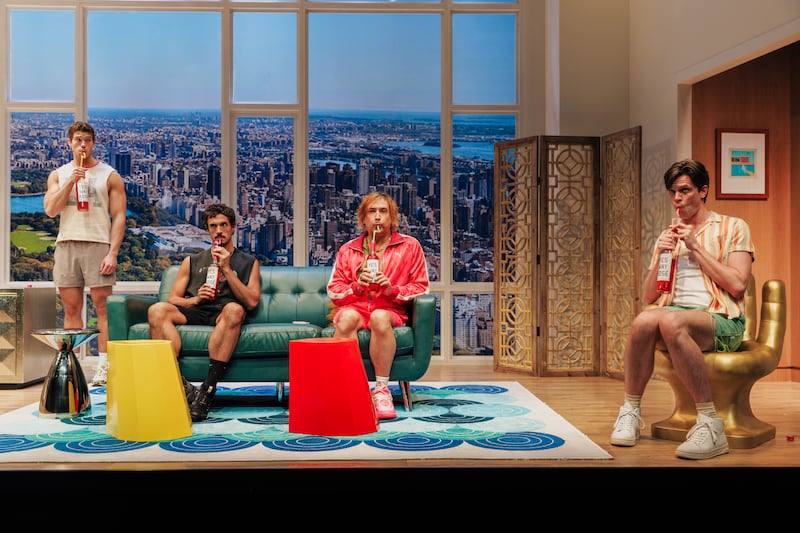
It’s Sunday morning. Merry at a party the night before, Caden doled out invitations. The ensuing knocks at the door of the men’s apartment, mean the guests will want food, but really drink, drugs, and a forum to out-b—h one another in a race to the bottom of the rosé bottle. (Forget glasses, this is drinking with individual bottles and windy straws.)
Enter first Thacker (the excellent Pete Zias), an old-school flamer who blithely b—hes, then is a flake, then nails it, then loses it, all in his own otherworldly cycle. He’s a Grey Gardens Edie in neon bodycon. Next comes dim/not dim/dim again social media hunk Addison (Derek Chadwick, with 1.7 million Instagram followers himself), who thoughtfully brings arms the size of hams to the party.
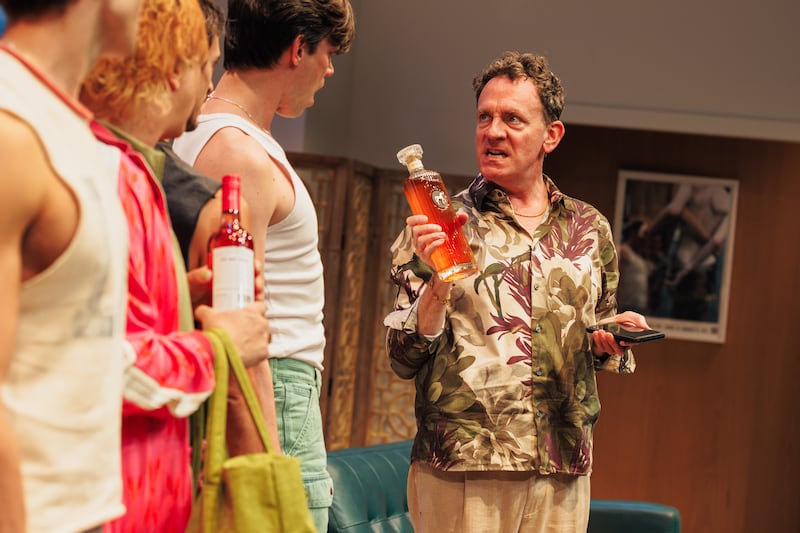
Droege’s own, late-arriving character—downstairs neighbor Karl, recalling The Boys in the Band’s Harold—counters the liberal pieties that Caden spouts and Addison’s insipid influencer chatter. For a while we have the tension of a very dead body hidden in a Jonathan Adler credenza alongside a group of sniping queens cutting each other down to size around age, sex, money, looks, desire, drugs, online fame, and partying. Soon, the apartment becomes a warzone, littered with food, vomit, and verbal lacerations—and that corpse.
The title of the show, directed by Mike Donahue, is spelled out in lights across the stage when you arrive, and as a banner headline may sell tickets to a hometown audience wanting to see that demographic comically skewered. But the show is more farce than barbed analysis of the obnoxious shallowness of the party, clothes, status and money-obsessed queens the title summons up—even if the show both flirts with satirizing the lack of Black friends in their social group and, through Caden’s criticisms of his partner and the group more generally, their unthinking, unquestioning embrace of the privilege they possess. (Caden himself is a Smuckers heir!)
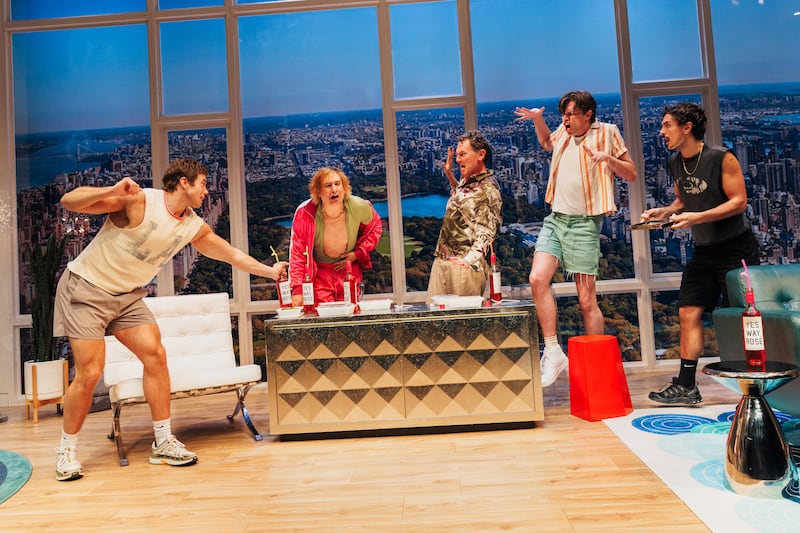
The cold viciousness that Cusati-Moyer gives Brecken is reminiscent of Dall’s Brandon in Rope, and his stony glare, sadistic kicking of Monty’s dead body, and permanent snarl give the show and the character a serrated edge: what is he capable of as a murderer, and as a partner? Isn’t an ultimate sign of privilege of a “messy white gay” that they could murder with impunity, simply annoyed at the victim’s lack of social skills? When Caden’s wealth is revealed, an examination of who really holds the balance of power in that relationship would give the show additional depth.
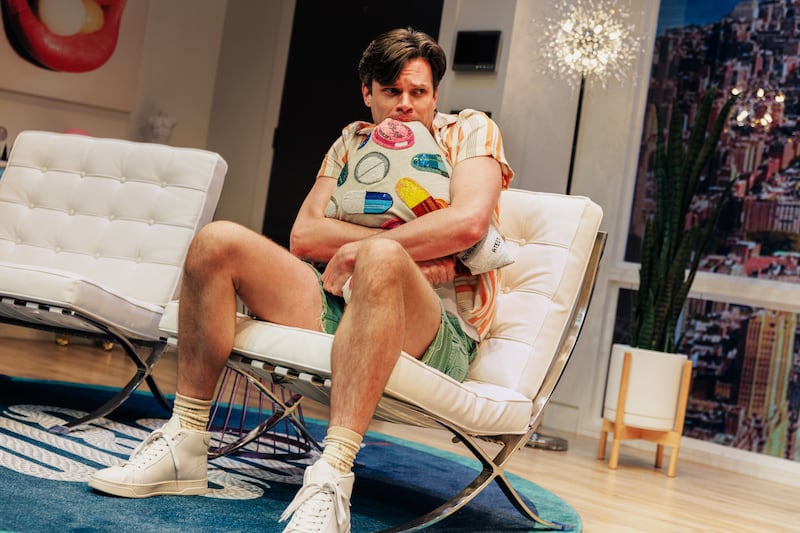
But deeper questioning and nuanced ambiguities aren’t really what Messy White Gays is about. Droege—famed for his impersonations of Chloë Sevigny—is a formidable joke writer, and in previous shows like Bright Colors and Bold Patterns and Happy Birthday Doug, his well-crafted volleys of insults, jokes, and gay-cultural observation were leavened with character evolution and observation. Messy White Gays is a different proposition—more a high-voltage, extended comedy sketch than fully realized play.
The gags come…well…thick and fast.
“There’s a problem.”
“What? Is Lisa Rinna back in the cast of Chicago?”
You may laugh, you may gasp (particularly at the literally blowout finale), and Messy White Gays may also make you want to stay in for the rest of your lives.
The post The ‘Messy White Gays’ Finally Get Their Comeuppance appeared first on The Daily Beast.
